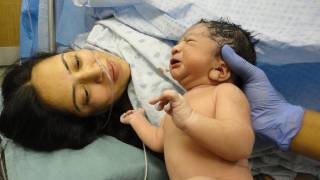Charlotte and San Diego Report Shigellosis Outbreaks

Two cities who have battled hepatitis A outbreaks during 2018 are advising their residents with compromised immune systems that they could be at an increased risk for the intestinal disease Shigellosis.
Shigella and hepatitis A go hand in hand with poor sanitation or sanitary practices. But, there is not a known relation to viral hepatitis A.
As of July 2, 2018, the San Diego County Health and Human Services Agency (SDCHHSA) reported 98 cases of Shigellosis.
During 2017, a total of 334 Shigellosis cases were reported, which represents a 37 percent increase compared to 2016. A large proportion of the 2017 cases (63%) were among men, many of whom self-identified as gay or bisexual, reported SDCHHSA.
Separately, the Charlotte Observer reported at least 40 people are sick after eating contaminated food at a potluck birthday party in east Charlotte on July 1, 2018.
Mecklenburg County Health Director Gibbie Harris, MSPH, BSN, RN said, “Some partygoers are infected with a "highly contagious" disease called Shigella, which causes diarrhea and is spread through feces.”
At least 19 people had been admitted to local hospitals by midday Monday, Harris reported and a few were in intensive care.
About 100 people attended the birthday party, and more may still get sick, as symptoms of Shigella can take one to three days to show up after someone is infected.
“Health department officials are still investigating the outbreak. They may ask people to stay home from work or daycare if they're showing symptoms,” said Harris.
“Anyone who works in food service, healthcare or childcare should stay home if they're sick,” Harris said.
In 2013, Shigella infections caused an estimated 34,400 deaths in children less than five years old.
Shigellosis is an infectious disease caused by a group of bacteria called Shigella, says the Centers for Disease Control and Prevention (CDC). Most who are infected with Shigella develop diarrhea, fever, and stomach cramps starting a day or two after they are exposed to the bacteria.
Shigellosis usually resolves in 5 to 7 days. Some people who are infected may have no symptoms at all, but may still pass the Shigella bacteria to others.
The spread of Shigella can be stopped by frequent and careful handwashing with soap and taking other hygiene measures.
At present, there are no licensed vaccines available for Shigella, reports recent research.
However, studies in animals and humans have demonstrated that protection by vaccination is feasible.
Immunity to Shigella appears to be strain-specific, so a vaccine that covers the most commonly detected strains or a vaccine using cross-species conserved antigens would likely be most effective.
A diversity of Shigella vaccine candidates are under development, including live attenuated, formalin-killed whole-cell, glycoconjugate, subunit, and novel antigen vaccines.
Our Trust Standards: Medical Advisory Committee
- County Issues Shigellosis Advisory
- Dozens sick after eating food contaminated with feces at potluck birthday party
- Shigella – Shigellosis
- Status of vaccine research and development for Shigella
- San Diego Says ‘Don’t Forget Your 2nd Hep A Vaccination’
- Should Kentucky and Tennessee Require Hepatitis A Vaccinations for Food Staff?


























